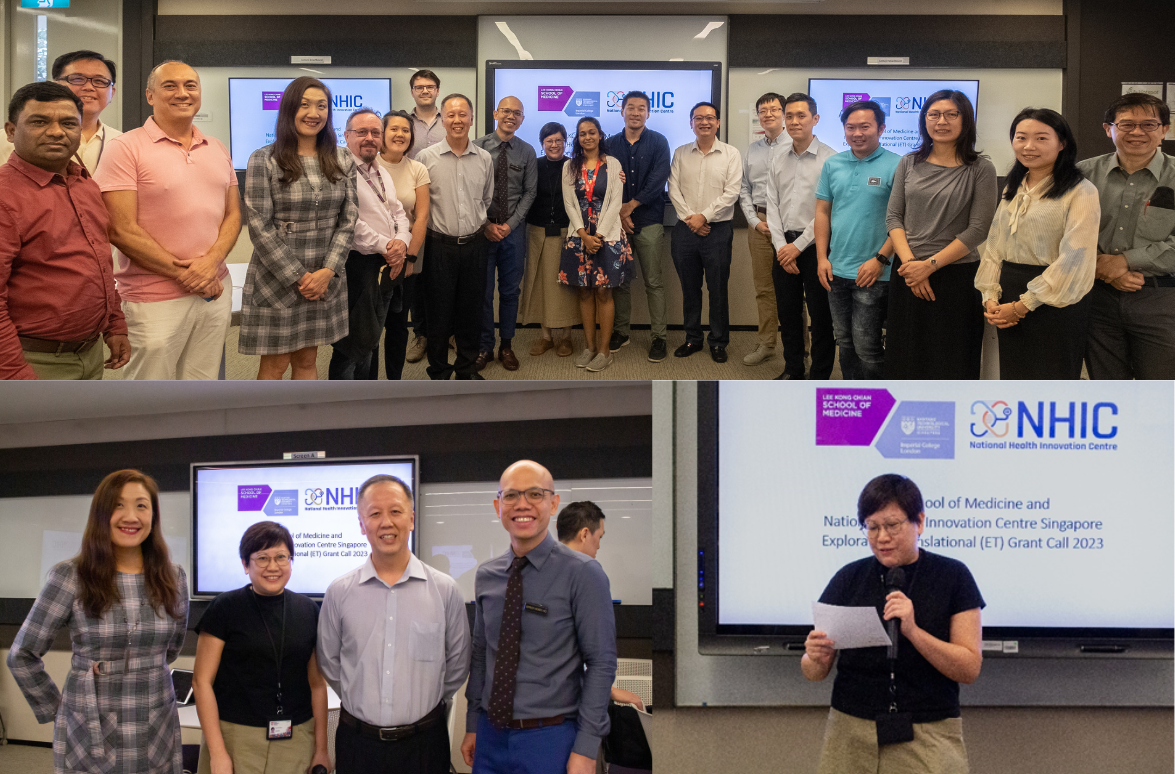Breaking new frontiers in healthcare innovation
This has been a remarkable year for CRIS and our programmes.
Join us as we take a look at the key highlights in 2023 in breaking new frontiers in healthcare innovation.

Diving into the heart of cardiovascular research excellence

Our newest programme – the Cardiovascular Disease National Collaborative Enterprise (CADENCE) – has been making great strides since its formation earlier this year.
As a national programme, CADENCE brings together data science, clinical trials and digital health talent and capabilities across the country to enhance the cardiovascular health of Singaporeans and establish Singapore as a global leader in cardiovascular research.
It has established four joint platforms to translate cardiovascular disease research into preventive and public health outcomes which benefit patients, researchers and communities in Singapore. They include:
- Data Imaging and Tissue Repository
- National Cardiovascular Clinical Trials Network
- AI, Digital Health and Human Potential
- Business Intelligence and Development Unit
CADENCE’s platforms are led by key cardiovascular disease leaders in Singapore, including the National Heart Centre Singapore, National University Heart Centre, Singapore, Tan Tock Seng Hospital, Lee Kong Chian School of Medicine at Nanyang Technological University and A*STAR.
Learn more about CADENCE here.
New national facility boosts Singapore’s cell and gene therapy capabilities
In August 2023, the Advanced Cell Therapy and Research Institute, Singapore (ACTRIS) announced the launch of Singapore’s largest cell therapy facility to meet the increasing clinical demand for local cell and gene therapy (CGT) treatments.

Comprising 14 Good Manufacturing Practice-compliant (GMP) clean suites, four translational laboratories and one quality control laboratory, the 2,000 sqm facility will support hospital services, academic institutions for research, and biotech start-ups here.
Click here to read the full press release.
Genetic study involving thousands of Singaporeans identifies variations affecting predisposition to inherited diseases and response to medications
In February 2023, Precision Health Research, Singapore (PRECISE) announced two multi-institutional studies of nearly 10,000 Singaporeans, identifying genetic variations in ethnic Chinese, Malay and Indian individuals which predisposes them to highly prevalent conditions with high disease burden and adverse responses to widely used drugs.
The studies are among the first of their kind in Asian populations. Click here to read about these important publications.
Announcement of TRUNCATE-TB study trial findings: Significant decrease in treatment duration for Tuberculosis patients
In April 2023, TRUNCATE-TB, one of the key studies supported by the Singapore Clinical Research Institute (SCRI) announced trial findings that indicated Tuberculosis patients could look forward to a much-shortened treatment period, compared to the current six-month treatment regimen used globally.
SCRI supported this multi-site trial which was designed and coordinated from Singapore across a network of 18 sites in Indonesia, Philippines, Thailand, India and Uganda, Africa.
Find out more here.
Launch of NHIC-LKCMed Exploratory Translational Grant with Lee Kong Chian School of Medicine’s Office of Innovation and Enterprise
In March 2023, the National Health Innovation Centre Singapore (NHIC) launched a Joint Exploratory Translational Grant together with the Lee Kong Chian School of Medicine’s Office of Innovation & Enterprise to provide much-needed seed funding for early-stage innovation projects.

This grant funds the development of promising healthtech ranging from biotech, medtech, diagnostics, to software-as-a-medical-device technologies. Eligible projects can expect to receive up to $100,000 and grant recipients can potentially use it as a launchpad to seek further funding.
At the launch event, the NHIC team also shared about the holistic suite of support to partner clinicians on their innovation journey from ideation to commercialisation and clinical adoption across the public healthcare clusters.
Check out highlights of the launch here.

